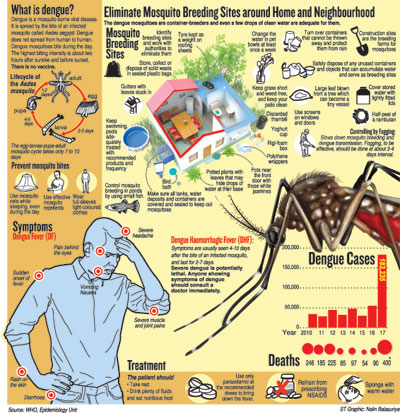News
Time is of essence in dealing with dengue:Expert
A woman in the prime of life, a girl on the threshold of her teen years and a few more — all dead due to dengue, when the country is not even in the throes of an epidemic!
Why?
This is the question on the minds of many because Sri Lanka is lauded as one of the best countries in the clinical management of dengue, better even than Thailand and Singapore.
“Time is of essence in dealing with dengue,” says Negombo Hospital’s Consultant Paediatrician Dr. LakKumar Fernando who has much experience in curing patients badly-affected by this viral disease, reiterating that there are very simple measures that people with fever and doctors to whom they go to can take to prevent deaths.
To bring about zero-deaths in this current spread of Dengue Virus 2 (DENV2), Dr. Fernando who is the Clinical Head of the Centre for Clinical Management of Dengue and Dengue Haemorrhagic Fever, Negombo, recommends:
- Towards the end of Day 1 of fever do a Dengue Antigen NS1 test. If it is positive, follow it up soon after, with a Full Blood Count (FBC).
- Even if there is less fever, but if the patient is feeling very weak with lots of body-aches, it is advisable to do a Dengue Antigen NS1 test at the end of Day 1 and if positive, an FBC. He suggests that without drawing blood twice, a little extra blood could be drawn into an EDTA tube when doing the Dengue Antigen NS1 test so that if it is Positive, the FBC can be done immediately thereafter.
- If the Dengue Antigen NS1 is Positive but the FBC counts are high (the platelets between 150,000 and 400,000), the person can stay at home but keep in touch with the doctor and repeat the FBC at the end of Day 2 of fever.
- What the doctors need to know after another 24 hours is the rapidity with which the platelet count is coming down. If there is a rapid drop by Day 2, then the patient needs to go to the hospital for monitoring and management.
Stressing that he has found that these tests are necessary to bring down the deaths in dengue, he cites the example of a child who was found to be Positive in a Dengue Antigen NS1 test on Day 1, but had a good platelet count of 360,000.
“Don’t wait for another three days to check a second FBC because by that time if there is a rapid drop in platelets, the patient is in serious trouble,” says Dr. Fernando explaining that the very next day’s FBC of this child showed that the count was 220,000 platelets.
Realising that there was a steep drop in the platelets and the child may be going into the leaking stage fast, Dr. Fernando had advised the parents to admit the child to hospital the same evening. They had done so immediately and the next test soon after had shown a drastic drop in the platelets to 65,000. If the child remained at home, the consequences would have been disastrous.
He gives another example – on Day 1 of fever, a patient was found to be Dengue Antigen NS1 Positive and the platelets were 160,000. The testing on Day 2 had shown the platelet count to be 11,000 and it was found that the patient had begun leaking fluid 1½ days into the dengue infection, unlike the majority hit by dengue in whose case leaking begins on Day 3 and beyond.

Dr. LakKumar Fernando
To the query why there have been several deaths recently, Dr. Fernando says that the contributory factors could be patients “coming in late” and not seeking medical attention as soon as they were hit by fever. Even if they sought medical help, the doctors may have decided to keep them at home and treat them without realising that they would descend into fluid leakage quickly. By the time they were admitted to hospital it would have been too late.
“People may also not be so terrified of dengue as they were before, because the clinical management is good. A good indication of people not being too bothered about dengue is the fact that they are no longer taking precautions such as the use of mosquito repellent,” he points out.
Categorically, he says that there is nothing new in these dengue infections. It is DENV2 which has been prevalent throughout last year.
According to Dr. Fernando back in 2009, our death rate was 1% and now it is only 0.2% — a big drop in the number of deaths when compared to the number infected with dengue — because of good clinical management in hospitals.
This has brought about a sense of complacency and many feel it is acceptable but should not we go that extra bit, moving away from the classical way of doing tests only on Day 3, asks this dengue expert, stressing that if doing an extra test on Day 1 instead of Day 3 can make a difference between life and death, we should go ahead.
“Even one death is one too many,” adds Dr. Fernando.
| Hot weather results in mosquitoes being produced faster | |
| Mosquitoes are being produced faster because the weather is hot, according to Dr. LakKumar Fernando.“The incubation period when the larvae become adult mosquitoes is shorter due to the warm weather. If earlier, the incubation period was 10-12 days, now it may be about 4 days. The dengue mosquitoes also need only a drop of water to proliferate. The shorter incubation period, meanwhile, has resulted in the survival and life expectancy of these mosquitoes being longer, allowing them to bite more people,” explains Dr. Fernando. |
| Simple steps to follow | |
| The simple principles that Dr. LakKumar Fernando asks people to follow are: Seek medical advice and help early, as soon as you, your spouse, your child or your close relative get a fever. Don’t take non-steroidal anti-inflammatory drugs (NSAIDs). This is because the first suspect if you are having fever should be dengue and NSAIDs will do more harm than good, if it is dengue. Looking back at last year’s terrible dengue epidemic, he says there were about 185,000 cases and 450 deaths. He believes that the deaths could have been brought down to below 50 if the simple principles were followed. |

